#kanji study
Explore tagged Tumblr posts
Text
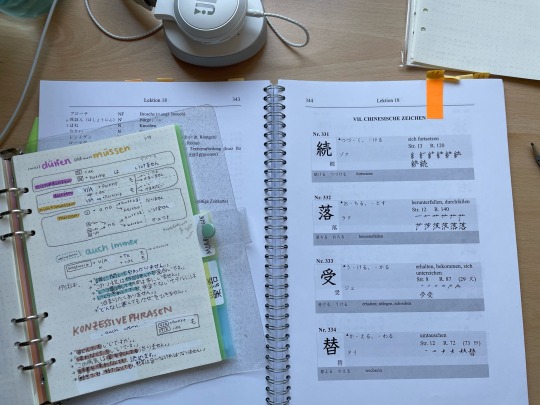
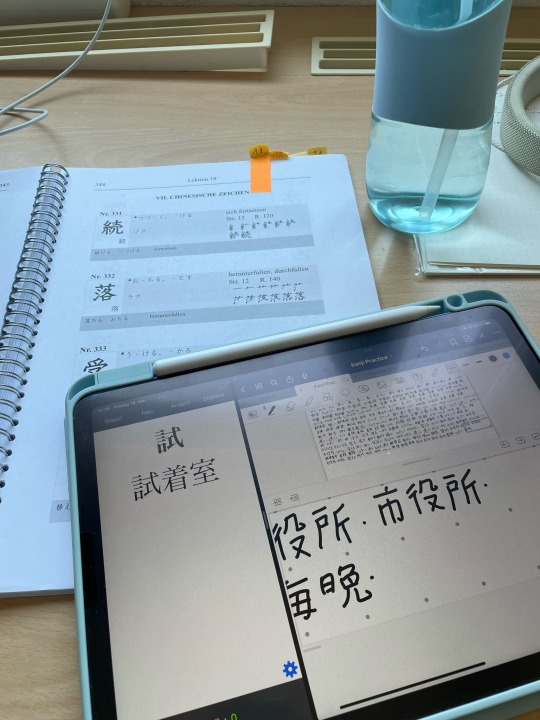
currently on that kanji grind!!!!
#studyspiration#studyblr#language study#japanese study#kanji study#studyinspo#langblr#language learning
10 notes
·
View notes
Text

Studying and I just... I mentally call Kanji like this "snail Kanji" because they look like a snail with a cool shell
0 notes
Note
I bet the topic of gender and sexuality in this universe is super interesting. Extra-canon stuff points out that the long-lived races have an effect on what’s seen as attractive by short-lived races. The beauty standards of humans leans towards feminine androgyny, because elf gender presentation is very ambiguous. While on the other hand, half-foots on average see dwarves as the beauty standard. Oh, the in-universe discourse surrounding this would be so compelling!
Here's the extra about beauty standards!
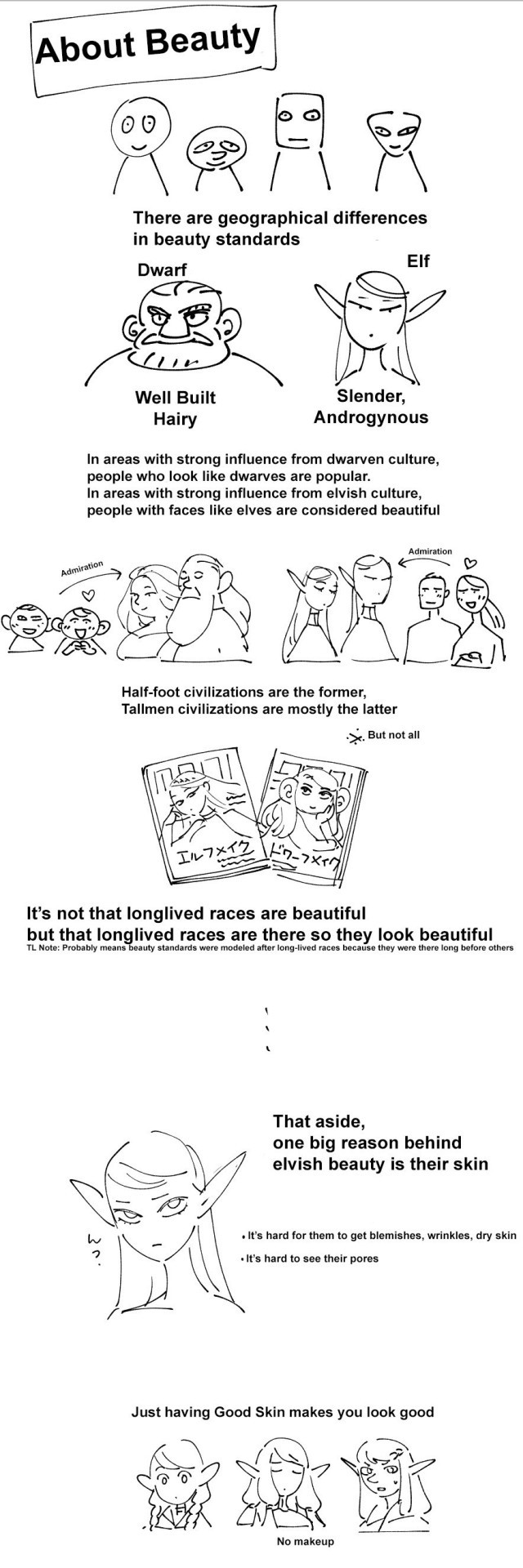
Speaking of which, while going back through ryoko kui's blog I realized there's a last bit I haven't seen translated? I attempted to translate it with my poor jp, the help of google and by going by how this first part was translated. But there's these kanji I cant understand at all! Ryoko Kui's handwriting is my worst enemy
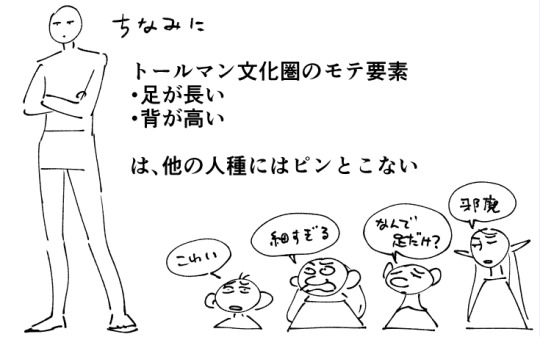
Here's what I got so far
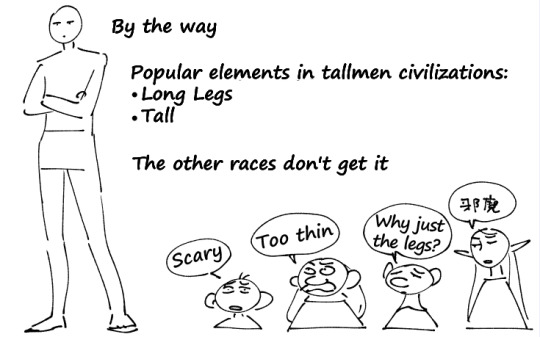
So besides Elf beauty standards tallmen also have their own specific tastes! Makes sense considering they're such a wild spread race. If anyone knows what the elf is saying please help
Edit: thanks to iamluminia in the replies! Aparently the elf is saying "邪魔", maybe they think this conversation is a bother?
#dungeon meshi#ask#tallmen#elves#dwarves#half-foots#beauty standards#Also feel free to point out if I got something wrong#I translated it as “Tallmen civilizations” cause I think its the same word used on top that was translated that way#I only know a little bit of japanese so I draw on google translate the kanjis I don't know but it can't recognize whatever the elf is sayin#to be fair I need to study kana again too I keep trying to guess and missing LMAO
840 notes
·
View notes
Text

#japanese#langblog#learning japanese#japan#langblr#japanese vocab#manga#anime#tumblr language#japanese vocabulary#shojo#learn kanji#study kanji#kanji practice#hiragana#日本語#nihongo#tokyo#kyoto#kawaii#asian
168 notes
·
View notes
Text
I have collected the four most basic Japanese verbs.
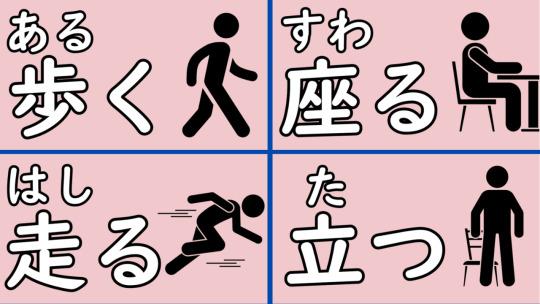

#japanese#日本語#japaneselearning#learn japanese#japanese kanji#jlpt#nihongo#japanese language#study japanese#kanji
172 notes
·
View notes
Text


learning the basics 📚
(yet again)
(this time i won't abandon the language istg 🥲)
#laura studies#laura learns#student life#studyblr#study space#study blog#studyinspo#japanese langblr#japanese#hiragana#katakana#kanji
159 notes
·
View notes
Text
japanese is such a kind language. like you forget a character it will hold ur hand and tell u that everything will be ok and you can just write it in hirigana and everyone will understand :)
and then chinese is like oh im sorry you forgot a character? youre illiterate. you mispronounce a word? your mother is now a horse
#japanese#kanji#hirigana#chinese#language#langblr#language memes#funny shit#funny#shitposting#memes#tweet#linguistics#cunning linguist#linguistness#linguistique#linguine#language study#language stuff
461 notes
·
View notes
Text
Beginner Resources: Studying Hanzi
Are you starting to learn Chinese? Are you trying to figure out how to approach studying hanzi?
First, I would suggest you read some short article that explains radicals in hanzi. Those are the components that 'spell' the hanzi character, there's not very many, and they can often help you guess the meaning or pronunciation of a hanzi you run into. Here is a list of Chinese radicals on Berlitz.com so you can get some familiarity with what they look like, their pronunciation, meaning, and some example hanzi that have those radicals. This Chinese Character Radicals wikipedia article explains how radicals can sometimes contribute a meaning or sound to the hanzi. I suggest reading through both of these articles fully, and saving them to reference later. You do not need to memorize, or spend more than a couple hours reading these. Just having a basic familiarity with what radicals are, and what they contribute to a hanzi, will be helpful as you learn hanzi.
For Chinese beginners, this is still absolutely my favorite study resource for learning hanzi. The book teaches 800 common hanzi, from HSK 1-3, and it uses mnemonic stories it provides you (so you don't have to come up with stories on your own - unlike Heisig) to teach meanings and pronunciation and tone. After studying this book, it's achievable to keep using the same kind of mnemonic story strategy used in this book to keep learning hanzi on your own. That's what I did. This book got me from 0 hanzi knowledge, to enough to read graded readers (I read Mandarin Companion and graded readers sold on Pleco app), and then from there I'd picked up enough additional hanzi to start reading the Newcomer/Beginner stories suggested on Heavenly Path Notion Site's recommendations. (I jumped into reading harder stuff way faster than I perhaps should have, and eventually went back and read some of the Newcomer/Beginner stuff Heavenly Path recommends such as TuTu DaWang 禿禿大王).
Learning Chinese Characters: (HSK Levels 1-3) A Revolutionary New Way to Learn the 800 Most Basic Chinese Characters; Includes All Characters for the AP & HSK 1-3 Exams
There is also an anki deck, with mnemonic stories provided, to keep studying hanzi if that method works well for you and you need a little more aid for a while before moving onto learning hanzi entirely on your own. This is the anki deck I used for around ~500 hanzi when I was trying to speed up my hanzi recognition, since I jumped into reading BL webnovels pretty fast (faster than I probably should have lol): Mnemonics - 3018 Simplified Chinese Hanzi
There is also a traditional version of that anki deck: Mnemonics - 3035 Traditional Chinese Hanzi
#rant#chinese#chinese resources#chinese reference#hanzi#hanzi study#chinese characters#radicals#study resources#hanzi resources#langblr#these are what I used to study hanzi#they all worked very well. I never finished the anki deck because as I read more I picked up a lot more hanzi by just reading#That Tuttle 800 hanzi book is absolutely what made hanzi something I could initially remember finally.#and indirectly it helped tremendously with japanese kanji as well... i tried Heisig for kanji and hanzi and it never worked for me
94 notes
·
View notes
Text
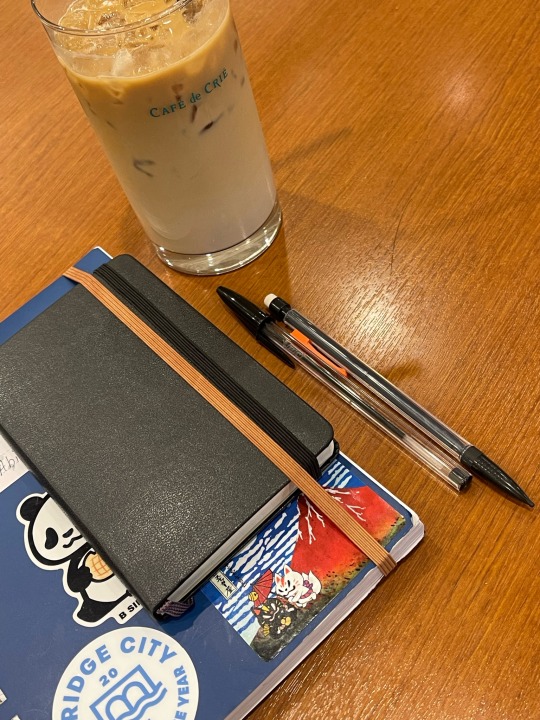
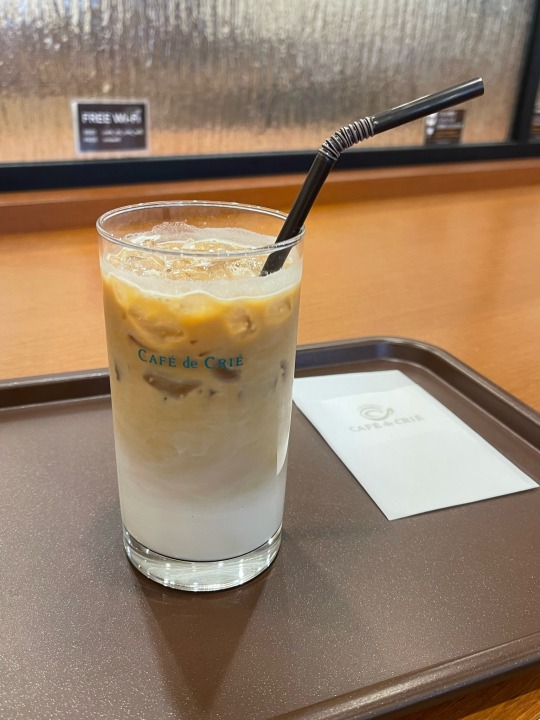
#studyblr#study blog#langblr#langblog#japanese langblr#japanese language#japanese#studyinspo#study motivation#study aesthetic#japanese kanji#japanese manga#learning japanese#student life#language learning#language blog#language
286 notes
·
View notes
Text
I learned it's easier to learn verbs in their ない form first, vs. their dictionary form first. Makes recognizing the difference between Godan and Ichidan verbs 100% easier and removes the need to "remember" the "hidden/fake/lying" verbs that parade as the other verb type. The trick to doing it is far easier and I hate how Genki teaches it in the book. Leaving me with only having to learn the conjugation patterns for Ichidan, Godan, and Irregular verbs. Far, far easier.
#learning japanese#fountain pen#jlpt#jlpt n5#kanji#japanese#日本語#senchastudying#studying#studyblr#langblr#language#fountain pen ink#見#Verbs#Japanese Verbs#Japanese Vocabulary#japanese langblr
307 notes
·
View notes
Text
losing my mind because I just figured out that not is one of the kanji in togame's name a turtle/tortoise ((亀) (kame/game)) but so is one of the kanji in choji's name meaning rabbit/hare ((兎) (to)) so they basically are the The Tortoise and the Hare from Aesop's fables.
#i knew about togame but only after i saw the kanji writing of tomiyama i figured out that one#i'm embarrassed how slow i was at figuring it out considering i study japanese lmao#anyways i'm completely normal about them and i won't use every possible metaphor about turtles and rabbits for them not at aaaall#wind breaker#wbk#wind breaker (satoru nii)#togame jo#tomiyama choji#moon rambles
58 notes
·
View notes
Text

catboy 170.. me rn.
#catboy#daily art#catboy art#digital art#doodle#doodles#sketch#i donwanna do nothing. actually no i wannastudy japanese but i dont wanna review. only new things. i want that dopamine hit.#^-^ but yknow thats sort of productive. i need to get through this book so that i can try and stumble through the bl i bought.#i wanna study kanji too. what if i just dont draw anymore today#im not feeling it..#sorry to give u my whole life story in the tags im just planning out my day at 4pm dont mind mme.
55 notes
·
View notes
Text
January 2025 study summary

Loading January 2025 data-----------Loading complete
Study days: 26/31
Studytime in total: 3D 12H 42MIN⏱️
Tasks completed: 243✅
Genki chapter 1 + 2 and workbook, learned 120 kanji (grade 1 plus few from grade 2) reading N6 stories, vocabulary on Memrise, Lingodeer app lessons

#study#motivation#study motivation#study tips#language#studyblr#studyspo#japanese#japan#japanese language#learn japanese#日本語#langblr#genki#kanji#lingodeer#memrise#productivity#study productivity#studying#study blog#productivityboost
28 notes
·
View notes
Text
Credit to @japanese_with_josh
I found this really helpful to hear a real life situation- not just from a textbook!
#japanese#language learning#studyblr#日本語#japan#langblr#japanese grammar#study japanese#nihongo#study#learn japanese#langblog#study kanji#travel#jlptn5#kanji#languages#language study#study abroad
688 notes
·
View notes
Text

#learning japanese#japanese#langblog#langblr#japan#manga#japanese vocab#anime#tumblr language#japanese vocabulary#study kanji#learn kanji#kanji practice#kanji#doulingo#japanese fashion#japanese hairstyle#harajuku#tokyofashion#shonen#shojo#dandadan
176 notes
·
View notes
Text
Discover these four Japanese adjective examples.




65 notes
·
View notes